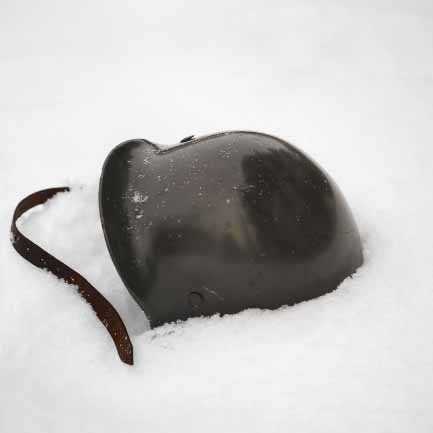On October 20, 1962, within hours 283 Indian soldiers were killed when the Chinese came from the Thagla range shadowing the Namka Chu river

Cold was responsible for the death of many in the then ill-equipped Indian Army. Photo: Thinkstock
On a sunny morning a young shepherd takes his cattle across the lovely winding Namka Chu into the dense pine forests on the ridge above. The cold wind blows in from the north and the boy looks up at the steep mountain ahead of him covered by rhododendrons. He steps on a rusted shell, picks it up, examines it and then flings it into the flowing rapid waters of the rivulet unmindful of the tragedy that took place here half a century ago, a military disaster of the Indo-Chinese War.The 1962 Chinese aggression on India for the most part lies consciously overlooked. That ignominy is best buried, especially since the nation took a beating. Writing must be celebratory, we feel, especially when we speak of national pride. That is one possible reason no one is expected to re-think of the defeat and the military slipups of our generals. But my mind goes back to it having lived through the Sixties as a child, listening to stories of the war that have only recently become instances of shocking misrepresentation, vilification or as Salam Rushdie would say, ‘memory’s truth’.The Chinese came as an avalanche at the break of dawn from the Thagla range shadowing the Namka Chu river, wiping out an unprepared and ill-equipped adversary, an instance of the terrible theatre of absurdity in the annals of military history matched only by the Vietnam massacre. On October 20, 1962, within hours 283 soldiers died, hundreds wounded and many forced to spend over nine months in a prison in China in sub-zero temperatures, surviving the long endless ordeal in flimsy winter clothing and three meals a day of unappetising rice and radishes. Some of them came back to tell their story. Sadly, many stories still remain untold.My mind rambles to the agonising moral questions of the brutality and ugliness of war, a negotiation of the military generals with politicians while the subalterns have little say in the shaping of strategic combat warfare. History tells us that it is not the people who demand war; it is the governments that entice and persuade by appealing for sacrifice in the name of a noble cause or the spread of democracy. But the sanctity of the ‘moral crusade’ has to be questioned because at the centre of all wars lies homicide, torture, mutilation and rape of the innocent. War crimes are an aspect of the human history of aberration.Apart from the inadequacy of military solutions, I struggle to understand if it was a war or a massacre. I revisit the Homeric wars that were fought with ethics as the sine qua non of any fair battle. Armies faced each other with an understanding that the opponents would be equally matched. Often the most heroic and brave warrior was pitched against an opponent with corresponding credentials. And if they did not compare favourably, the war stood postponed till more fitting warriors entered the contest. Understandably, needless bloodshed stood circumvented with the outcome of the war dependent only on a well-matched bout.It is for this reason that modern scholars from Jean Braudillard to Paul Virilio have felt that the Gulf War, like other modern wars, did not take place since the cold-blooded end is foreclosed even before the war begins; the enemy is visible only as a speck on the TV screen thousands of miles above the earth or still sleeping in the bunkers. No face-to-face confrontation takes place. These are cold-hearted instances of savagery shameful to the core. But military records, reports and transcripts remain long hidden from public scrutiny and tolerance for war crimes a modern day political expediency. Lesson that wars should be the last resort have yet to be learned by the human race. It takes so long to learn the truth.The writer is a Professor and Fellow at the Department of English and Cultural Studies, Panjab University, Chandigarh
